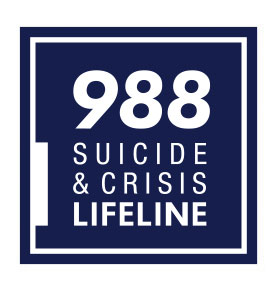Resources
Important Links
New Jersey Professional Counselors Examiners Committee (Licensing Board)
National Board of Certified Counselors (Administers the National Counseling Examination)
Center For Credentialing in Education (Administers the Approved Counseling Supervisor credential)
The Council for Accreditation of Counseling & Related Educational Programs (CACREP)
For counselors
To earn a license to practice independently, you must meet the standards established by your state’s licensure laws and regulations. These generally will require you to:
- achieve a master’s degree in counseling or a related field, which usually includes an internship, practicum and prerequisite coursework of either 48 or 60 credits, depending on the state
- complete a specific number of hours of experience providing both direct and indirect services under clinical supervision
- pass required examinations
Obtaining your professional counselor license is the next progressive step toward expanding your skills and knowledge beyond your educational degree. It gives you the privilege to legally practice as an independent mental health practitioner. Other reasons for becoming a licensed professional counselor include:
- Clients and employers can confirm that you have met the minimum requirements necessary to practice.
- Your services are more likely to be covered by your clients’ health insurance.
- You will improve your eligibility to practice in states that participate in the interstate Counseling Compact.
Many counselors regard professional licensure as a key milestone in their professional development, and for many, it is a step toward increasing opportunities and reaching future career goals.
Each state has an established board responsible for issuing counseling licenses, handling consumer and ethical complaints regarding counselors’ practice, and issuing and enforcing regulations needed to oversee the profession. In some cases, a single board is responsible for overseeing counselors along with one or more groups of similar professionals, such as clinical social workers, substance use providers, and marriage and family therapists.
Requirements for licensure, along with licensing policies and procedures, vary among the states and may be revised and updated periodically. Therefore, it is important for you to stay up to date on the requirements, policies, and procedures of your state.
Within the United States, several different titles are used to identify professional counselors. The following are the most common:
- licensed professional counselor (LPC)
- licensed mental health counselor (LMHC)
- licensed clinical professional counselor (LCPC)
- licensed professional clinical counselor of mental health (LPCC)
- licensed clinical mental health counselor (LCMHC)
- licensed mental health practitioner (LMHP)
In some states, an associate license is required for applicants who have met the education and examination requirements but have not yet met the supervised experience requirement. Examples of such titles include:
- licensed associate counselor (LAC)
- licensed professional counselor associate (LPCA)
- licensed graduate professional counselor (LGPC)
- counselor-in-training (CIT)
- clinical resident
Governmentally sanctioned credentialing, usually called “licensure,” is based on the legal concept of the regulatory power of the state. This power holds that the state has the right and obligation to pass laws and take other such actions as it may deem necessary to protect the health, safety, and welfare of its citizens. Passage of state licensure or credentialing law for a given profession restricts or prohibits the practice of that profession by individuals not meeting state-determined qualification standards, and violators may be subject to legal sanctions such as fines, loss of license to practice, or imprisonment.
In addition to obtaining a state-issued license to practice, you may seek to expand your counseling knowledge and skills by obtaining a voluntary certification. Certification does not grant legal authority to practice as a professional counselor. Nor does it guarantee the effectiveness of your skills. Rather, certifications are granted by independent organizations to various mental health providers — including professional counselors, social workers, psychologists, and marriage and family therapists — who want to document and display their professional competence.
Obtaining voluntary certification from an independent professional certification organization is one way to gain recognition for meeting the minimum standards of additional education and supervised clinical experience. Keep in mind that certification is not a practice credential but rather a professional credential — namely, it does not give you permission to practice as a professional counselor. That permission is given only by the governmentally sanctioned entity, which is the state licensure board.
For additional information about earning your clinical licensure as a professional counselor, check out these two documents:
For licensure
The Professional Counselor Examiners Committee ("the Committee") is a sub-committee of the State Board of Marriage and Family Therapy Examiners. Members of the public may attend the Committee's public sessions where the Committee discusses pending legislation that affects the mental health field and public correspondence. The Committee reviews applications, proposed plans of supervision, matters of pending disciplinary action, and other confidential matters during its Executive Sessions which are closed to the general public.
State Board of Marriage and Family Examiners
Professional Counselor Examiners Committee
P.O. Box 45044
Newark, NJ 07101
The phone number to reach the Committee's staff is (973) 504-6582.
Yes, you may attend the Committee's public sessions, which start at 9:30 a.m. Please note that individual applications and complaints cannot be discussed in public session due to confidentiality issues.
You must fillout a complaint form and mail it to the Committee at:
State Board of Marriage and Family Examiners
Professional Counselor Examiners Committee
P.O. Box 45044
Newark, NJ 07101
A Licensed Professional Counselor (LPC) may practice counseling, counseling interventions, appraisals and assessment, consulting, and referral and research activities, pursuant to N.J.A.C 13:34-10.3(a).
A Licensed Associate Counselor (LAC) may practice counseling, counseling interventions, appraisal and assessment, consulting, and referral and research activities, but MUST work under the direct supervision of a qualified supervisor, pursuant to N.J.A.C 13:34-10.3(b).
For Clients

988 crisis hotline:

